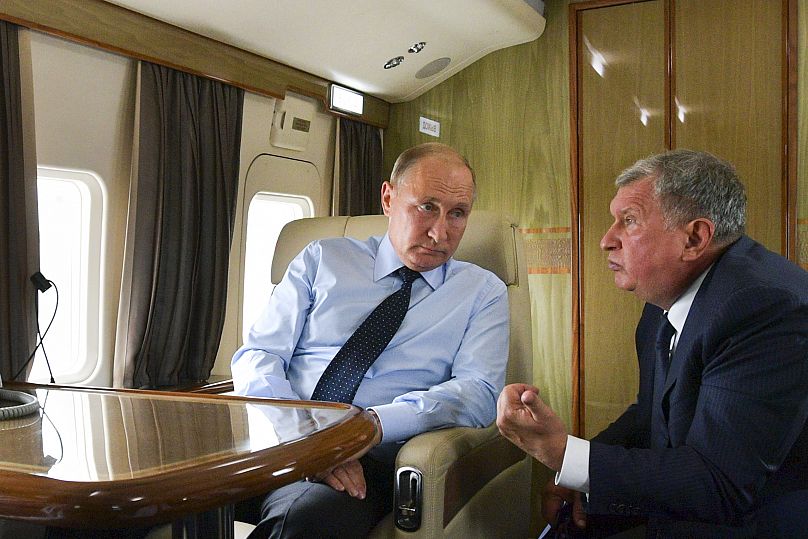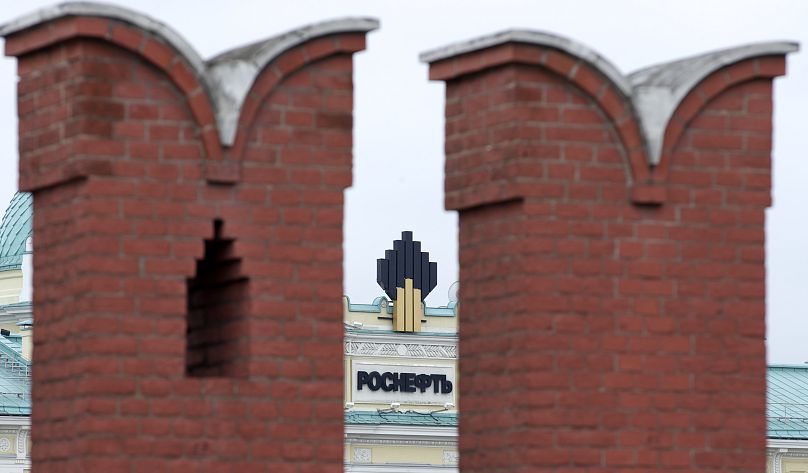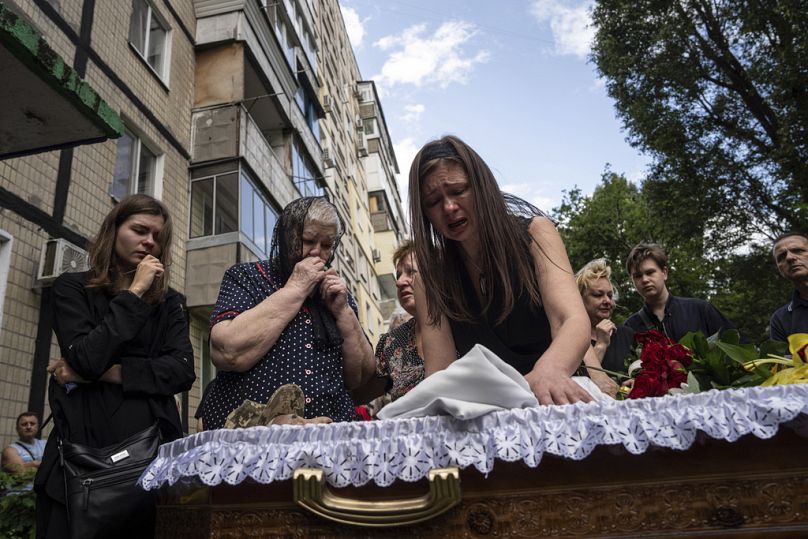Governments in Europe have a choice to make: do they continue to turn a blind eye to this blood money, or do they face it head-on and make sure the right thing is done, Lucy Hall writes.
This week, Russia’s largest oil company, Rosneft, announced it will pay its shareholders 406.5 billion roubles (€4.08 bn) in dividend payments for last year.
 ADVERTISEMENT
ADVERTISEMENT
 ADVERTISEMENT
ADVERTISEMENT
One of these shareholders is British oil major BP, which, despite pledging to sell its one-fifth stake in Rosneft when Russia invaded Ukraine, still owns the same amount now as it did at the start of the war.
BP, which operates in seven countries in the EU, including Germany and Belgium, stands to net over 80bn roubles (€797 million) from the Russian oil major. This money amounts to wartime profits.
Promises unkept
The last time Rosneft announced dividends in December 2022, BP said it “would not recognise this dividend as income’’.
The Big Oil giant stated that under Russian regulations, payments would be made to ‘’a specific restricted Russian bank account, the contents of which could not be transferred outside Russia without government approval".
BP considered it had ‘’received no dividends from Rosneft’’ since writing down its shareholding, but Ukrainian campaigners have called Russian oil profits made during the Kremlin’s illegal war in Ukraine "blood money".
So why aren’t these profits being challenged?
When the war in Ukraine began, companies were quick to announce that they were pulling out of Russia, and given the horrors of the invasion, they were taken at their word.
Yet, that never happened. Western oil companies and their enablers are still very much tangled up in Russia.
Sadly, the buck does not stop with BP. Other major Western oil companies, including Shell and TotalEnergies, are complicit in keeping Russian oil flowing around the world.
Why? Well, in part because they’re also making huge profits from it.
Stakes in further developments and sketchy jet fuel sales
Shell stands to net just under €1.27bn after Russian gas company Novatek bid for its stake in a major oil and gas development in the far east, Sakhalin-II.
This money would cover over 10% of the direct damage done to Ukraine’s energy infrastructure by Russian attacks. At the company’s AGM on 23 May, it refused to answer a question about what it would do with this money.
And as for TotalEnergies? It isn’t much better. The French company, which finally pledged to "gradually" pull out of Russia, still own a 19.4% stake in Russia’s second-largest natural gas producer — Novatek.
At the end of last year, Total took a €3.37bn write-off on its stake in the Russian company.
This writing down of Russian assets came only after it was revealed that a Siberian gas field owned by Total and Novatek was supplying gas condensate to a refinery that was producing jet fuel for Russian fighter aeroplanes.
All of this amounts to hypocrisy
The money that companies like BP, Shell and TotalEnergies have made from the war should be donated to the green reconstruction of Ukraine.
Last year, Shell set this precedent when, after making an opportunistic purchase of a discounted cargo of Russian crude oil as tanks were bearing down on Kyiv, the company apologised and gave the profits from the transaction to humanitarian organisations in Ukraine.
But this one-off donation is not enough.
Governments in Europe have a choice to make: do they continue to turn a blind eye to this blood money, or do they face it head-on and make sure the right thing is done?
These profits should be taxed at 100% and redirected to the green reconstruction of Ukraine.
All of this amounts to something like hypocrisy. Whilst talking about reconstructing Ukraine, Western oil and gas companies are actually complicit in funding the Kremlin’s illegal invasion.
Fossil fuel giants are prioritising profit over serious efforts to end the war; it’s time for Western governments to step up.
Lucy Hall is Communications Advisor for the Ukraine project at Global Witness.
At Euronews, we believe all views matter. Contact us at view@euronews.com to send pitches or submissions and be part of the conversation.













